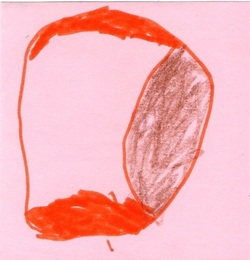 Outsider Art
Outsider Art Journalist Reports on Fraud +++ Artist Masquerades as Outsider +++ "Art is all about Fabrication" +++ Other Artist's Reactions mixed - One says: "happens all the time", Another: "I mean, outsider? Really?
Visual Arts writer Jen Graves of www.thestranger.com reports on an experienced US-based artist who pretends to be an "Outsider Artist", i.e. being self-taught, "authentic", new to the art scene. Except that she wasn't. She just made it all up, looking for a new marketing concept. Big Deal, you might say, but isn't it peculiar that someone deems it profitable to be an outsider artist - in 2013? It all puts a spotlight on how strong the pressure on artists has become. Or, how willingly we adopt the concept of an "artist's legend" the art world imposes on us. As a consequence, artists lie. Indeed, we all try to showcase a proper CV featuring shows at high-ranked venues. Not enough entries in the list? Add some "open studio" shows, declare something as a "project", include "private collections" featuring your work, or list your teaching experience. You need an artist's statement - why not write it yourself. Don't forget to use art-speak in abundance: "X' work inquires the visual plot of aesthetic transgression by re-framing the political rupture into a language of space". Artists lie when they apply for grants and open calls for shows with the most obscure titles. Yes, my work is about "Tangent Spaces of the Innuit People" all the time. Most of all, artists lie to themselves: Life as an artist is the only one we can imagine, we are autonomous, we are happy. We believe in solidarity among peers, we deny the fact that our shows attract but a few people - most of them friends. And as much as we rail against institutional gatekeepers and commercial success, even so we want to climb up the ladder, too. To get back to our impostor: to be an outsider artist alludes strongly to the legendary idea of artistic authenticity. Now this is, and in the history of art always has been, a contradictory notion. You're either in or out. But more important it reveals a craving to leave it all behind. Says Graves: "I left refreshed. A conversation about art without any tired jargon!" Read the full article here The Lies of the Artists
Visual Arts writer Jen Graves of www.thestranger.com reports on an experienced US-based artist who pretends to be an "Outsider Artist", i.e. being self-taught, "authentic", new to the art scene. Except that she wasn't. She just made it all up, looking for a new marketing concept. Big Deal, you might say, but isn't it peculiar that someone deems it profitable to be an outsider artist - in 2013? It all puts a spotlight on how strong the pressure on artists has become. Or, how willingly we adopt the concept of an "artist's legend" the art world imposes on us. As a consequence, artists lie. Indeed, we all try to showcase a proper CV featuring shows at high-ranked venues. Not enough entries in the list? Add some "open studio" shows, declare something as a "project", include "private collections" featuring your work, or list your teaching experience. You need an artist's statement - why not write it yourself. Don't forget to use art-speak in abundance: "X' work inquires the visual plot of aesthetic transgression by re-framing the political rupture into a language of space". Artists lie when they apply for grants and open calls for shows with the most obscure titles. Yes, my work is about "Tangent Spaces of the Innuit People" all the time. Most of all, artists lie to themselves: Life as an artist is the only one we can imagine, we are autonomous, we are happy. We believe in solidarity among peers, we deny the fact that our shows attract but a few people - most of them friends. And as much as we rail against institutional gatekeepers and commercial success, even so we want to climb up the ladder, too. To get back to our impostor: to be an outsider artist alludes strongly to the legendary idea of artistic authenticity. Now this is, and in the history of art always has been, a contradictory notion. You're either in or out. But more important it reveals a craving to leave it all behind. Says Graves: "I left refreshed. A conversation about art without any tired jargon!" Read the full article here The Lies of the Artists
 RSS Feed
RSS Feed
